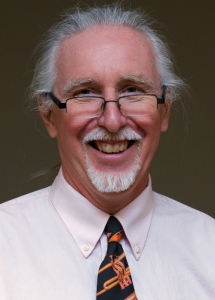 By Bob Hulteen
By Bob Hulteen
The Metro Transit bus route 2 includes a long section of Franklin Avenue in Minneapolis, so I can pick up the bus just a block from my house and get dropped off less than a block from work. Most days the 2 bus is my mode of transportation to work. And I am so often blessed by “the ride.”
Because the route traverses several resource-deprived areas and is a short transfer away from a hospital and clinic, a number of riders are in wheel chairs, often due to complications caused by diabetes. Also just a block off the route is BLIND Inc., a nationally-recognized training center for blind persons of all ages. Many passengers use canes. By and large, people treat each other incredibly well, making the ride better for all.
Some passengers with indications of mental illnesses are also regular riders of the bus. While not always, these folks contribute greatly to the community care of the ride. And, to be very honest and speaking for myself, I truly experience acts of clear compassion more often on the bus than in churches I visit.
I RECENTLY FOUND out that May is mental illness month. I confess that I don’t know much about mental illness. If I am being truthful, I am even uncomfortable discussing it. I don’t even know if the way I am talking about mental illness is insensitive. If so, I apologize. But I am aware that increasingly people I know are talking about struggles related to mental illness.
So, I better educate myself. And I commit here to doing so.
“To be very honest, I experience acts of compassion more often on the bus than in churches I visit.”
I am much more comfortable talking with assurance about structural evil and social sin than care for individual people. That deficit is likely the primary, but not the only, reason that I did not attend seminary.
When the Rev. Dr. Richard Wallace was teaching at Luther Seminary, however, I was inspired. He challenged students to start with their pastoral care passion, but to look for all the external factors impinging on people’s struggles.
Wallace challenged students to think about ways that racism or sexism or homophobia or ableism could cause or contribute to mental health issues for individuals. These social sins or structural evils can exacerbate exponentially individual challenges that already exist. Pastoral care, Wallace would contend, requires taking seriously the entire person, including those systems that hold people in bondage.
As the church addresses mental health struggles in a committed way this month, I pray that we can bring a sensitivity to the structural challenges facing people as well. Who knows? Perhaps there is even room for me in the seminary.
UPDATED: An earlier iteration of this blog did not include several of the stories.
